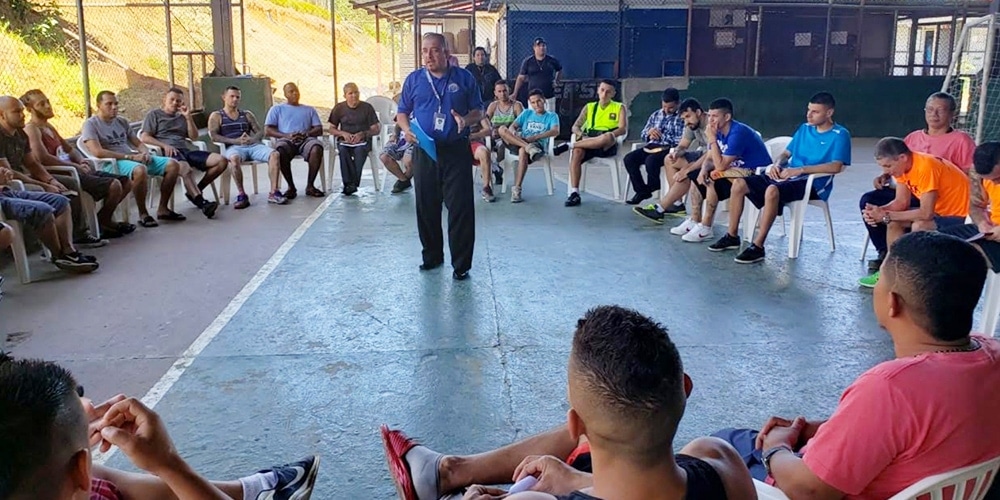
The Seventh-day Adventist Church’s South Central American Union Mission (SCAU), which oversees churches and institutions across Costa Rica and Nicaragua, recently gathered a group of pastors and professionals to take part in the first segment of a clinical pastoral education program in Alajuela, Costa Rica.
Overseen by the Adventist world church’s Adventist Chaplaincy Ministries (ACM) through the Adventist Chaplaincy Institute, the program requires four segments, or units, of 400 hours each, to qualify professionals so they can provide pastoral care and nurture to persons regardless of their faith.
Need for Qualified Chaplains
“There’s an alarming need for qualified individuals to be able to carry out the delicate work of chaplaincy,” said SCAU president Wilfredo Ruiz. “We are very grateful for the investment made so that these individuals can be a strong team of chaplains in our territory.”
The training, which involved instructional and practical sessions for five weeks starting in January 2019, included visits to the church’s school campuses and visitation to dozens of inmates at a correctional facility in Alajuela.
Fourteen people were enrolled in the specialized training, including pastors, teachers, theology students, and other professionals, who are part of a task force to cater to the spiritual needs of those in the church’s institutions as well as the community at large, organizers said.
Those needs include the spiritual health of students and employees of the church’s educational system, as well as people outside the church in hospitals, correctional facilities, community service programs, and more, church leaders said.
It’s about greater opportunities for qualified personnel to aid those who are under the care of the church, said Marvin Gómez, chaplaincy ministries director for SCAU.
Gómez coordinated the training event with Marcio Palencia, who is the coordinator of chaplaincy at Central American Adventist University and main local supervisor of the chaplaincy training.
Reaching Institutions Outside the Church
Palencia reached out to leaders at the Dr. Gerardo Rodríguez Echeverría Correctional Facility in Alajuela, who looked at and praised the chaplaincy training program and opened the doors for the chaplains-in-training to talk with 100 inmates during special sessions. Alexander Spencer Sandi, the coordinator of the spiritual support group and chaplaincy at the correction facility, said he welcomed the ministry of the Adventist Church for the inmates. He was so impressed with the clinical pastoral education training program that he enrolled for the remainder of the training units the church will offer, Palencia said.
In addition, three main hospitals in Costa Rica were contacted and access given for a number of chaplains-in-training to serve community hours to aid patients with their emotional and spiritual needs during a period of time in one public and two private hospitals.
Palencia said he invited Ileana Carazo, a Jewish rabbi and chaplain at CIMA Hospital in San José, to visit with the group of chaplains-in-training and look at the training program. “She applauded the initiative as she visited the university campus during training and said that it is the first program in Costa Rica that teaches an inter-denominational professional chaplaincy training,” Palencia said.
Plans are underway for a special agreement with the Adventist university and CIMA Hospital for chaplains-in-training to visit the health institutions during the second unit of training in the coming months, Palencia said.
Turning Point in Chaplaincy Education
“This is a watershed moment in chaplaincy education for our territory because it points us to opportunities outside of our church organization that are in great need of chaplaincy services,” said Inter-America Division (IAD) chaplaincy ministries director Hiram Ruiz.
It is the first time since clinical pastoral education began in 2018 in the territory that a union organization has reached out beyond its church institutions, IAD’s Ruiz said. He reports that seven other unions have begun the training segments and three more union territories are scheduled to begin this year.
“This has to be a challenge now for other church territories,” Hiram Ruiz said. “Not only can we connect with prisons, but also nursing homes, orphanages, spiritual first responders after a disaster, and more.”
Marvin Gómez contributed to this report.
The original version of this story was posted on the Inter-American Division news site.